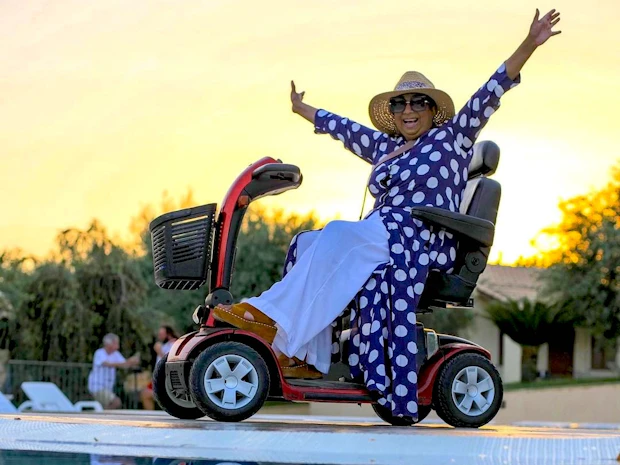| Mon-Fri: | 9:30am - 5:30pm |
|---|---|
| Sat-Sun: | 10:00am - 5:00pm |


| Mon-Fri: | 9:30am - 5:30pm |
|---|---|
| Sat-Sun: | 10:00am - 5:00pm |
LAST CHANCE – £1000 Off Summer Cruises 2025
It’s that simple, as it should be.
Founded by disabled travellers, we know first-hand the brain power it takes to plan a holiday. And then, when you finally get away, excitement turns to worry as you question whether your needs will be met, not to mention the fear of what could go wrong. That doesn’t sound like a holiday.
We're excited to transform your experience of accessible travel. Whether you were born with a disability, received a diagnosis later in life, care for a loved one with special needs, had a life-changing event, or simply want to feel supported while away. Limitless is here for you.
We're a small team based in Birmingham who have been delivering award-winning accessible group holidays for over 9 years. With professional carers on every trip, meticulous planning of itineraries, and comprehensive accessibility, we take care of everything so you can enjoy a holiday with peace of mind. Speak to our friendly advisors on 0800 711 7112 to begin your Limitless journey.

The Limitless Travel team experiences a range of mobility issues themselves, so there is no compromise when it comes to accessibility. We’re fed up with being misled by non-specialist travel providers. So when we say accessible, you can guarantee we mean it.
We visit each hotel, test every lift, and always strive to make our holidays as inclusive as possible. We wish the world was accessible; it sadly isn’t, but with our expertise you can enjoy a great holiday, feeling safe and comfortable when away from home.

As part of our easy booking process, you’ll have a 1-1 call with a care specialist. Why is this required? To ensure every traveller has the support they need.
We’re the only UK provider to bring professional carers and a tour manager on every trip, offering six levels of support, from companionship to 1-on-1 care. We personally interview every carer to ensure they are the right fit for Limitless. So not only does our brilliant team provide dedicated assistance, but they are also the type people you would want to go on holiday with!

Let us remove all the usual stress of booking a holiday. Our friendly team of Travel Advisors is dedicated to finding the best holiday for you. They’ll take the time to get to know exactly what you’re looking for and how Limitless can best support you.
You’ll never feel rushed and will be guided through each stage without hassle. So whether you’re speaking to Sharon, Adam, or Lucy, you’ll be speaking to people who want the best for you.
Schedule Your Free Consultation
Angus Drummond founded Limitless Travel in 2014 after being diagnosed with muscular dystrophy. Frustrated by the limited options for accessible holidays, he knew something needed to change and was determined to make a genuine difference.
Since then, Limitless Travel has enabled over 4,000 people of all abilities to explore the world. We take pride in our expertise, but we don’t have all the answers. We're a small team committed to overcoming challengers and finding solutions, so that nothing gets in the way of your holidays.

What comes to mind when you think of group holidays - long journeys, large groups, rushed from place to place?
That's not how we do things. We keep group sizes small so you can make genuine connections, and enjoy a wonderful holiday together. It's this companionship that sets Limitless apart.

If you’ve ever felt uninspired by the lack of choice when it comes to accessible holidays, then we hope you’ll be excited, maybe even surprised, to hear that we offer over 100 holidays to destinations worldwide. From Cornwall to the Caribbean, coach to cruise, we make it easier than ever to find, plan, and enjoy your dream holiday.

Voted Accessible Holidays Provider of the Year at the TTG Travel Awards for the past two years, we are proud of our growing reputation.
But we don't only want to change travel. We're also striving to lead the way in rewriting the narrative of society, whereby people with disabilities aren't talked about with pity or treated any differently, they are simply seen as people. It’s not easy, but it’s so important, and we still have a long way to go.
Schedule Your Free Consultation